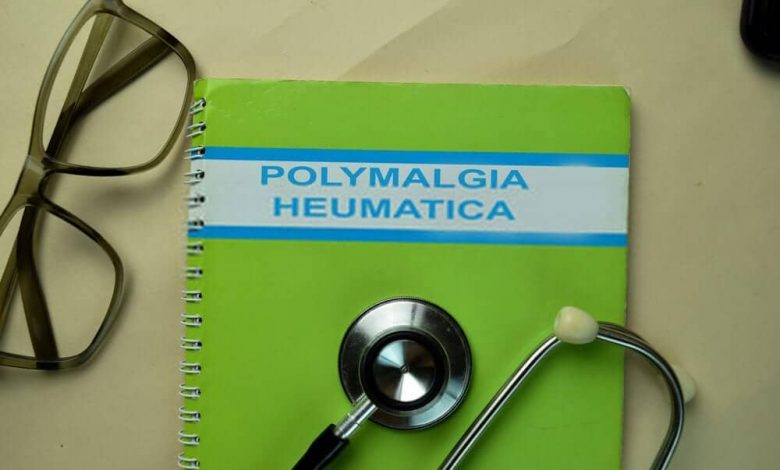Alternative Treatments For Polymyalgia Rheumatica

Polymyalgia Rheumatica causes stiffness in the shoulders, neck, and buttocks, especially in the morning or after long periods of rest. There is no known exact cause of this problem. But it can respond very well to simple medical methods of treatment. Also, there are natural remedies that you can use to relieve stiffness, relieve muscle pain, and other symptoms caused by the Polymyalgia Rheumatica problem. Continue reading!
Polymyalgia Rheumatica is a condition that causes pain and stiffness in the shoulder, neck, waist, and buttocks. In some cases, it can cause pain and stiffness in the hands or wrists. Pain and stiffness are at their worst in the morning, or even more felt after prolonged activities such as long driving or sitting. Immobility restricts movement, prevents patients from bending to wear their shoes, or even makes it difficult to button the shirt. Inflammation is often found in the joints, but there is no known cause of the disease. Blood tests diagnose this problem. These tests often include a check for erythrocyte sedimentation rate and C-reactive protein. Both are usually high in people with Polymyalgia Rheumatica problems.
Alternative Treatment Methods For Polymyalgia Rheumatica
There are no known natural treatments or quick dietary fixes for Polymyalgia Rheumatica. But there are ways you can manage your diet and activities to optimize your health. Also, you can take the necessary steps to naturally control the side effects that may arise from medical treatment or symptoms from related health conditions.
Try Anti-inflammatory Diet Types
Inflammation is closely related to the problem of Polymyalgia Rheumatica. Inflammation in the joints causes pain and stiffness that spreads in nearby muscles. Following an anti-inflammatory diet, this problem hasn’t been proven to affect symptoms. But many health experts say you can give your body extra tools to fight inflammation. You may also notice that certain foods ease or worsen your symptoms. This way, it can help you improve your diet according to your own needs. Remember that your diet may vary if you have other ailments, such as diabetes or heart disease. Consider the following anti-inflammatory dietary recommendations for Polymyalgia Rheumatica:
- Eat healthy fats: These are walnuts, flax, salmon and other fatty fish, fish oil supplements, coconut oil, eggs, and more beneficial omega-3 fatty acids they contain.
- Eat a wide variety of fruits and vegetables: This is an essential tip for many diets struggling with the disease. A range of fruits and vegetables offer plenty of nutrients, as well as fiber, antioxidants, and more. You can consume them fresh or steaming, adding them to salads. Also, oats, rice, corn, and quinoa can lower CRP levels in the blood, indicating inflammation. Refined grains and sugars can increase inflammation.
- Drink plenty of water: Proper hydration can help your body fight inflammation. Aim to drink two to three liters of water a day.
- Avoid inflammatory foods: These include many processed types of meat, foods with added sugar or white flour, pastries, margarine, fried foods, and red meat. You should also avoid foods that appear to be sensitive and worsen your symptoms.
Get Plenty of Calcium and Vitamin D
Osteoporosis risk doesn’t just increase with age, but the medical treatment of Polymyalgia Rheumatica (with steroids) can weaken bones. Fight against bone loss by taking plenty of calcium and vitamin D in your diet or supplements. Foods high in calcium include yogurt, milk, greens, and almonds. Foods rich in vitamin D include eggs, fish oil, juice, beef liver, and mushrooms. Vitamin D can also be taken from the sun.
Reduce Side Effects
Polymyalgia Rheumatica comes with symptoms that don’t entirely disappear with treatment, especially after steroid doses have fallen. Muscle pain, stiffness, and novelization can be a daily challenge. Also, steroids can cause weight gain, thinning skin, headaches, nausea, and other side effects. If your symptoms or side effects are frequent or uncomfortable, talk to your doctor. It could be a misdiagnosis, the wrong dose of medication, or another problem that can be addressed.
Get A Massage
Professional massages can significantly reduce both acute and chronic muscle and tissue novices. Some people experience permanent relief from the pain and stiffness associated with Polymyalgia Rheumatica during the weeks following the massages.
Get Rid of Nausea
Ginger or chamomile tea, vitamin B6 tablets, peppermint oil, or lemon oil aromatherapy, and small meals can help relieve nausea.
Absolutely Exercise
Exercise helps reduce the pain and stiffness of Polymyalgia Rheumatica in the morning and helps combat the potential health risks posed by steroids.






You make this sound like a walk in the park and not a disease that can kill.